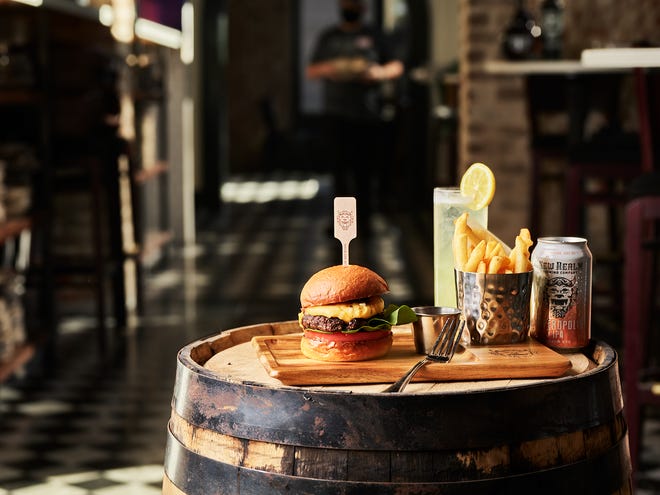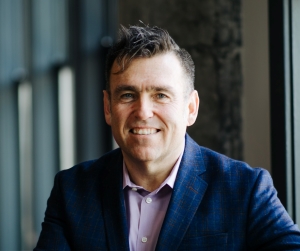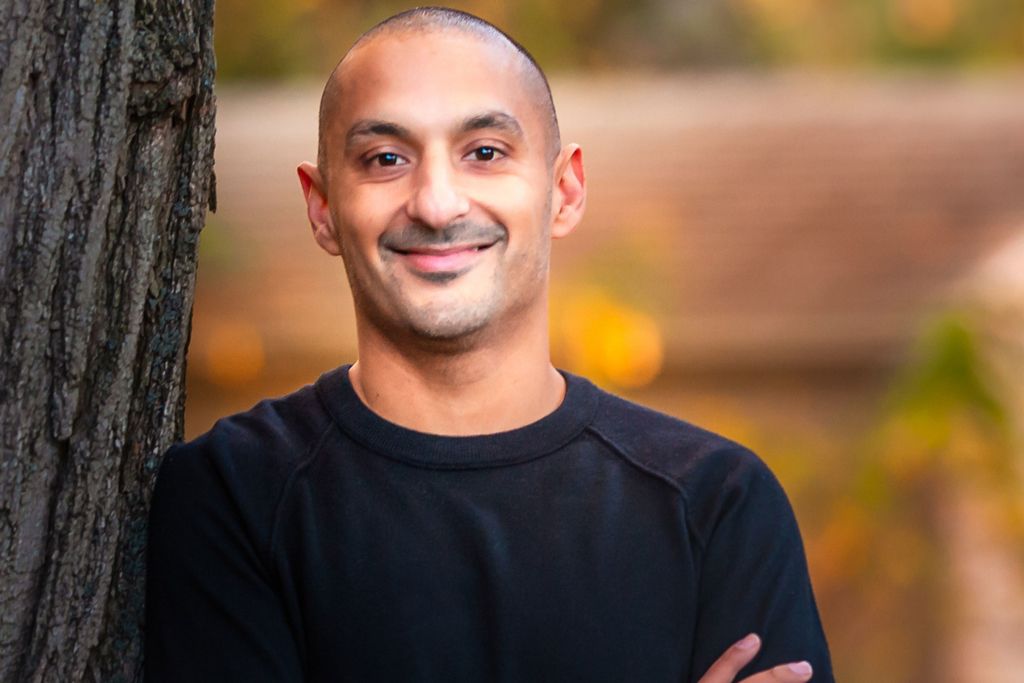
Two weeks after longtime tenants, High Spirits Hospitality announced they would be moving out of the Cigar Warehouse, the historic building has new tenants.
New Realm Brewing Company announced it would open a new location in the 11,000-square-foot facility at 912 S. Main St. Representatives for the company confirmed the development via e-mail Monday.
The new brewery and restaurant “will include a 5-barrel brewhouse, scratch restaurant, biergarten, dedicated stage and outdoor bar, and will be home to New Realm’s sour and barrel-aging program,” a press release stated.
The location is slated to open in Fall 2022.

New Realm co-founder and CEO, Carey Falcone said the company had been looking for a space in Greenville for over three years.
“One step inside of the iconic Cigar Warehouse and we knew we found a home that would serve as the perfect opportunity for us to create a community gathering place in an amazing city,” Falcone said in a statement. “The entire New Realm family is excited and we look forward to being a part of the Greenville community.”
New Realm was founded in Atlanta in 2016. The brewery has grown to include other locations in Savannah, Virginia Beach and Charleston. Plans for the Greenville space include maintaining the building’s historic character.
The Greenville brewery will feature New Realm’s award-winning craft beers along with limited specialty releases. The new location will also offer the brewery a chance to launch a sours program, according to information provided by the company.https://d7ada49b361f232e533c36f36020c6a6.safeframe.googlesyndication.com/safeframe/1-0-38/html/container.html
“A sours program has always been in our plans and the history and architecture of the Cigar Warehouse is the perfect location,” Mitch Steele, New Realm Co-Founder and Brewmaster said in a statement. “
The process involves barrel aging beers with a blend of microorganisms to create sour, tart, and acidic flavors.
The Greenville brewery and restaurant is expected to create over 100 new jobs, per the company.
For more information, visit www.newrealmbrewing.com.
Lillia Callum-Penso covers food for the Greenville News. She loves the stories recipes tell and finds inspiration in the people behind them. When she’s not exploring local food, she can be found running, both for pleasure and to keep up with her 6-year-old twins. Reach her at lpenso@greenvillenews.com, or at 864-478-5872, or on Facebook atfacebook.com/lillia.callumpenso.
Investment will further drug development and treatment innovation for complex, costly and underserved conditions like lupus, Crohn’s disease, rheumatoid arthritis and more.
SAN FRANCISCO & BARCELONA, Spain–(BUSINESS WIRE)–IMIDomics Inc., a drug discovery company focused on patients with immune-mediated inflammatory diseases (IMIDs), has announced the completion of a $16.5 million Series A financing round. The round was led by DNS Capital with additional investment from Bristol Myers Squibb, The Pritzker Organization, Tao Capital and others. IMIDomics was founded in 2015, following a decade of incubation within Vall d’Hebron Hospital in Barcelona, during which the IMID-Biobank was built. The company relocated to the United States in 2021.
“We are proud to have closed a successful Series A and are honored to have a visionary and dedicated group of investors who share our passion for IMID patient care.”
“We are proud to have closed a successful Series A and are honored to have a visionary and dedicated group of investors who share our passion for IMID patient care,” said Juan Harrison, President and CEO of IMIDomics. “Our partnerships with institutions like Vall d’Hebron Hospital as well as the thousands of patients living with immune-mediated inflammatory diseases, who have shared their data and samples over the past fifteen years, have given us a uniquely strong foundation for analyzing and discovering new ways to treat these complex diseases. With this new funding, we will be able to build on this foundation to fuel our precision discovery efforts and accelerate technologies that are critical to the further development of new IMID treatments, while expanding our teams in the US and Europe.”
IMIDomics’ Precision Discovery Platform combines and analyzes clinical, epidemiologic, and biomolecular data to uncover new insights about IMIDs including lupus, Crohn’s disease, rheumatoid arthritis, and ulcerative colitis. IMIDomics hosts the world’s leading dedicated IMID patient biobank, enabling a more granular understanding of these complex, interrelated and difficult-to-treat conditions. These insights allow the company to discover new and more effective treatment possibilities for IMIDs.
“We believe the IMIDomics platform is uniquely positioned to generate new and important insights that aid in the development of therapeutics to treat IMIDs,” said Michael Pucker, Chairman and CEO of DNS Capital. “We are excited to partner with IMIDomics’ extraordinary, dedicated team to support their future growth plans.”
The therapeutic needs of IMID patients have historically been underserved due to the complexity and lack of understanding around these diseases. Existing therapies are often unreliable, costly and can cause significant side effects. Furthermore, many IMID patients struggle to get an initial diagnosis and treatment because of the difficulty of identifying these related but distinct conditions.
“IMIDomics has established a Precision Discovery Platform that leverages patient data to reveal the fundamental mechanisms that drive immune-mediated inflammatory diseases. This deeper understanding offers the potential to lead discovery of new and more effective medicines,” said Dr. Sara Marsal, IMIDomics co-founder and Chief Medical Officer and Head of the Rheumatology Research Group and Department at Vall d’Hebron University Hospital. “Our approach can fundamentally change the way drugs are discovered for these complex diseases, and this financing will enable us to quickly identify relevant drug targets from the extensive data we have already collected.”
ABOUT IMIDOMICS, INC.
IMIDomics, Inc. is a privately held biotechnology company focused on the discovery and development of new medicines for the treatment of immune-mediated inflammatory diseases (IMIDs).
Headquartered in San Francisco, California, IMIDomics was founded in Barcelona in 2015 by Dr. Sara Marsal, Head of the Rheumatology Department at the Vall d’Hebron University Hospital, and Dr. Richard M. Myers, President and Scientific Director at the HudsonAlpha Institute for Biotechnology. Dr. Marsal began work on the IMID-Biobank at Vall d’Hebron University Hospital in 2006 where the project was incubated for ten years.
In the fifteen years since it began, the IMID-Biobank has grown to include real-world data from clinical records and biological samples from over 17,000 IMID patients and control subjects across six indications: rheumatoid arthritis, psoriasis, psoriatic arthritis, ulcerative colitis, Crohn’s disease and systemic lupus erythematosus. IMIDomics maintains an exclusive commercial license to use this leading resource on IMIDs for treatment discovery and development. IMIDomics utilizes a proprietary digital bioinformatics portal that integrates and interrogates data to generate novel insights into disease mechanisms, including identification of potential new drug targets.
This integrated capability, called the IMIDomics Precision Discovery Platform, enables precision medicine for IMID patients and will lead to therapies that address needs not addressed by current medicines. The company is actively conducting discovery programs, both for its internal pipeline and with pharmaceutical partners, while supporting the development and expansion of the biobank, patient datasets and bioinformatics portal.
To learn more about IMIDomics, please visit www.imidomics.com.
Contacts
IMIDomics Press Contact:
Sylvia Aranda at Real Chemistry
saranda@realchemistry.com

The plant-based food company’s leader discusses getting on McDonald’s menus, working with Snoop Dogg and creating a meatless chicken breast.
For Beyond Meat Inc. Chief Executive Ethan Brown, snark and skepticism about his company’s meatless “meat” products serve as motivational tools.
Plastered on the walls of his El Segundo, Calif., office are lines from critical reviews of the company’s meat-mimicking technology, which uses yellow peas, potato starch, coconut oil and other ingredients to replicate beef’s texture and sizzle. “Slightly better Tofurky,” reads one quote. Another cites a 2015 magazine article that said Beyond Meat would never be able to turn pea protein into a convincing substitute for steak or chicken.
“You have to hold on to that, take that negative energy and use that to fuel you,” Mr. Brown argues.
The 49-year-old founded Beyond Meat in 2009 after quitting a career in alternative energy. Since its 2019 initial public offering, Beyond’s share price has multiplied to $145.56 as of Tuesday from its IPO price of $25, and its burgers, meatballs, sausage links and other plant-based meat products are projected to generate more than $500 million in world-wide sales this year. Beyond now has its sights set on poultry, after recently testing a plant-based version with KFC.
The pandemic’s blow to the food-service industry hurt Beyond’s business, contributing to four straight quarters of losses and spurring it to ramp up its supermarket presence. And some products haven’t panned out, including Dunkin’ Brands’ late-2019 nationwide launch of a Beyond breakfast-sausage sandwich, which the doughnut chain recently scaled back to several hundred restaurants.
Mr. Brown recently spoke with The Wall Street Journal. Here are edited excerpts:
WSJ: Did the pandemic ultimately hurt or help the broader plant-based food movement?
Mr. Brown: It was a period of introspection for a lot of people, on broad social issues like race and equity. Awareness of the connection between livestock and climate only seemed to accelerate throughout the pandemic. All of those things work in our favor.
WSJ: You’re developing a plant-based burger with McDonald’s Corp., and you have partnerships with PepsiCo Inc. and Yum Brands Inc., which owns Pizza Hut, Taco Bell and KFC. What’s the measure of success for Beyond?
Mr. Brown: The true north is a global protein company. Some of the larger protein companies are $40 billion-plus in revenues. As a goal, I always have that in my mind.
It’s a ubiquitous presence we’re most after—that you can go into a McDonald’s and get a Beyond product, or KFC, Taco Bell, Pizza Hut, and it is seamless for people who want to transition toward a plant-based meat. We have to make the product indistinguishable from animal protein. We have a lot of miles left before we get there.
WSJ: You could arguably cut the price of your products as low as possible to get more people to switch from meat. As a public company, that would come at a cost to your shareholders. How do you balance profits with your mission?
Mr. Brown: I’d give it away if I could. We obviously can’t do that. The great news is that we have a model that is efficient enough to be able to underprice animal protein at some point. We’re just not there yet. It has to do with scale.
I set two years ago a goal of being able to underprice animal protein, in at least one category, within five years. I think that’ll happen to beef.
WSJ: Do you have to be vegan to work at Beyond Meat?
Mr. Brown: We’re building a company, not a cult. I’m a very strict vegan, but some of my closest friends and advisers are hunters and anglers. The people who are in agriculture, family farms, are some of the hardest-working, most decent people. Being adversarial toward them is really the wrong approach.
WSJ: Your product replaces traditional beef, pork, chicken. Why bother building bridges with traditional agriculture?
Mr. Brown: It’s out of respect. And there’s an opportunity to bring innovation back to those communities and back to the farmer. You have all these incredible increases in [crop] yield per field, but we keep feeding [it into livestock production.] What if we break that cycle and take those farmers to something much more efficient? Farmers can make a lot more money.
WSJ: You’ve attracted celebrity investors, like Kyrie Irving, Lindsey Vonn, Leonardo DiCaprio, Snoop Dogg. What’s the best business advice you’ve gotten from Snoop?
Mr. Brown: His ability to promote is remarkable. He pitches a big big tent, from Martha Stewart all the way to any up-and-coming rapper from the deepest corners.
WSJ: What’s the holy grail in terms of products you haven’t yet developed?
Mr. Brown: The real test for us is to make each of our platforms—beef, pork and poultry—indistinguishable from animal protein. How do you make a raw chicken breast with the translucent skin, the color transition that occurs? Steak, given its distribution of fat and protein, and, of course, bacon? Those three things are the holy grail.
WSJ: Is it accurate to call, for example, your chicken product chicken?
Mr. Brown: Yes, it’s useful. You can insist that meat has to come from a chicken, cow or pig. Or you can, instead, focus on the composition of meat. If we’re able to deliver the amino acids, lipids, trace minerals, vitamins and water in the same architecture as an animal’s muscle, I think we have the right to call it that, albeit plant-based.
WSJ: Fifty years from now, how much meat will people eat?
Mr. Brown: It’s a function of three things: The consumer will say, ‘This tastes like meat, it’s better for my body and I could pay less for it.’ If we can break through all three of those, I see us capturing vast percentages of the market.
Write to Jacob Bunge at jacob.bunge@wsj.com
Copyright ©2021 Dow Jones & Company, Inc. All Rights Reserved.
Appeared in the July 8, 2021, print edition as ‘Beyond Meat CEO’s Holy Grail Is a Perfect Fake.’

Indoor agriculture company also hires new CFO.
Rockingham County-based indoor agriculture company Shenandoah Growers Inc. has appointed former Starbucks Inc. Chief Marketing Officer Matthew Ryan as the company’s new CEO. And Mike Buckley, former senior vice president of business for Postmates, has been hired as Shenandoah Growers’ chief financial officer, the company announced Wednesday.
Former Shenandoah Growers CEO Tim Heydon, who stepped down from his post after 20 years helming the company, will continue to be “fully engaged” with Shenandoah Growers in a strategic advisory role to the company’s board of directors, according to a news release.
Prior to working for Starbucks, Ryan served as head of brand management at The Walt Disney Co. He sits on the board of Kaiser Permanente and graduated magna cum laude from Harvard University. Buckley served as CFO for Nike before he was at Postmates. He received his undergraduate degree from Stanford University and also graduated from Harvard Business School’s General Management Program.
The leadership appointments follow the recent hires of lighting and plant biology expert Tessa Pocock as the company’s chief science officer and former Walmart executive Cameron Geiger as Shenandoah Growers’ chief operating officer.
“When I looked at the booming business of indoor agriculture, Shenandoah Growers stood out as the company with the strongest track record, and the best technical and biological know-how to transform its existing market-leading position into a long-term strategic advantage,” Ryan said in a statement. “My career has been shaped and defined by innovative, market-leading companies. Here, the opportunity for growth could be even greater, as Shenandoah Growers is uniquely positioned to deliver against the converging demand for affordable, high-quality and organic produce, and the need to grow it sustainably and reliably.”
Shenandoah Growers President Philip Karp said, “Matt is a proven leader and strategist with an impressive track record of building strong, competitively advantaged brands in roles at Starbucks and Disney. As Shenandoah Growers seeks to do the same in produce — scaling across many different crops, sales channels and geographies — Matt’s leadership will be invaluable.” He added that the company “is also incredibly fortunate to be retaining the deep institutional knowledge of our outgoing CEO, Tim Heydon. Tim’s vision and steady hand have guided the company’s growth for the past two decades. The strong position we hold today as both a market and technology leader are a credit to Tim, and we are so pleased that he will continue to be an integral part of our team as this journey continues.”
Founded in 1989, Shenandoah Growers provides organic herbs and leafy greens to more than 18,000 retailers nationwide. Billing itself as developing the nation’s largest indoor organic growing systems, the company specializes in indoor vertical farming using hydroponics, aeroponics and aquaponics.

Mehra Joined the Food Startup Earlier This Year From Walgreens
Ahead of Ad Age’s 40 Under 40 annual feature, we caught up with former honoree Vineet Mehra, now with online grocery startup Good Eggs.
When we honored Vineet Mehra as a 40 Under 40 in 2018, he was executive VP and global chief marketing officer at Ancestry.com. After a two-year stint at Walgreens BootsAlliance as global chief marketing officer and chief customer officer, he joined Good Eggs, an online grocery delivery service based in the Bay Area, as chief growth and customer experience officer earlier this year.
Ad Age recently caught up with Mehra to learn how he’s balanced these roles, navigated pandemic life, and what lessons he’s learned along the way. Responses have been lightly edited for length and clarity.
It’s been a busy year for you, in more ways than one. What have you learnedfrom marketing at Walgreens, a drugstore chain, during a pandemic?
Never waste the opportunities of a good crisis to drive radical transformation. While I was the global chief customer officer for Walgreens Boots Alliance, working through the very height of COVID, and when the outlook of “return to normal” looked at its most grim, we worked with Microsoft and Adobe to strategize, design and invest in the largest Customer Data, CRM, and Experience platforms in the company’s history.
This was a move where the company exhibited collective urgency, leadership and courage, knowing and taking a bet that on the other side of the pandemic consumers would be forever changed in terms of how they shop for their health and wellness needs.It was these investments that enabled us to go from literally zero options to buy-online and pickup-in store across Walgreens, to offering it across the majority of our stores in four months. A truly amazing collaborative team effort across the business, start to finish. Never, ever waste the opportunities for transformation that a good crisis presents you and your organization.
Good Eggs is a much different company than Walgreens, but there are some retail similarities. Tell us about what instigated the shift in roles, and what yourgoals are for your new gig.
Since the 40 Under 40, I’ve moved from Walgreens, a $140 billion business with more than 10,000 locations and thousands of team members across the globe, to Good Eggs, which operates today only in the SF-Bay Area and is a tiny fraction of the size in terms of revenue and team members. What inspired the move was simple: having a front-row seat during COVID and seeing just how much consumers were changing in so many ways led me to think through the other industries, outside of health and wellness, that were going to have monumental shifts–and online grocery was that space.
Not only are consumers fundamentally shifting from brick-and-mortar grocery shopping online grocery shopping, we are also seeing a complete mindset shift in consumers wanting to ensure that their food decisions meet the highest standards for food welfare,100% transparency in terms of knowing exactly where their food comes from, and the impact that their food choices are having on the planet. It’s important to remember that COVID has not only changed how consumers shop in terms of convenience and ease, it has also created an environment for deep values and purpose-driven businesses that are authentically planet-and societally-positive, to thrive and set new industry norms.
Many of the at-scale e-commerce platforms today are simply not planet and people positive, and consumers are now waking up in masses to this reality and the negative impacts of some of these choices. At Good Eggs we believe that good food is the most powerful force for change for people and planet. Joining a business that is focused on fundamentally transforming how consumers shop for groceries online, while also raising awareness of the massive negative impact that the industrial food system and gig-economy has had on our planet and the people who work in it, was too good to pass up.
COVID has shown us all that businesses need to do better and be part of the change we want to see in the world—I was inspired to join Good Eggs, and be back in Silicon Valley for the second time, for just that reason.
How has your new role had to change due to the pandemic?
Leading 100% remotely. It’s been a huge leadership challenge and growth opportunity in learning how to build empathetic and trusted followership with your team, in possibly the greatest, seismic “change your business model” and “change the way you personally live” period in multiple generations—all while 100% remote. I don’t think anyone could have imagined a more intense period of leadership challenge, but I also think it was a one-in-life opportunity to grow as a leader.
The last year has seen the issue of social justice rise to the top of many leaders’ lists, but there’s still a long way toward equality. What do you think the industry can do to encourage more diversity in its ranks?
There is so much work to do. But if I were to take one area that is not talked about as much it would be to ensure that we all must be extremely deliberate and mindful that every time we communicate to the world about the brands we work on, we are making an impact on shaping culture and societal norms. I read somewhere that 60% to 70% of the content we see in our lives was produced by brands; what this means is that we all carry a lot of influence on the world through the actions we take expressing our brands into customers lives. Now think for a second the role content plays in our collective consciousness as a society, and the impact we can make by ensuring that each piece of content a customer sees from our brands makes a positive impact on diversity in our society. Let’s encourage diversity through our work.
What do you find most surprising about where you are now?
I always think about the fact that my mom and dad’s first trip out of India was to relocate to Canada with two small suitcases and a baby (me) in their arms—basically they started from scratch. To now have had a career across three continents, multiple countries, and a range of industries is really crazy to me and this kid from a tiny little family in India. Mind-blowing.
What single piece of advice would you give your younger self?
The real thing you should be chasing in your career is a variety of experiences, not titles, prestige, and cash.


WEST CHESTER, OHIO, 06/01/2021 – Lithko Contracting, LLC (“Lithko”), a leading national concrete contractor, along with their equity partners The Pritzker Organization and DNS Capital, announced today that on June 1, 2021 they acquired assets of Full-Tilt Constructors, Inc. (“Full-Tilt”).
Full-Tilt offers 50 years of combined experience in tilt-up construction with a focus on efficiency, quality, and expertise in the field. The company provides services in construction planning, designing, and building as well as tilt-up panels, specialty concrete flooring projects, and more.
With over 200 skilled coworkers, Full-Tilt is based in Orlando, Florida, and serves clients throughout Florida and the Southeast. The company prioritizes safety, value, performance, and exceeding client expectations for each project.
Lithko is a market-leading, full-service commercial concrete contractor specializing in the execution of walls, tilt-ups, structural frames, slabs, super flats, site work, foundations, and pre-construction services. Lithko has over 4,000 coworkers serving over 550 clients across 19 geographic regions. Lithko has a unique local service model designed to keep coworkers close to home and create exceptional customer service in each town.
Full-Tilt’s principal owners, Richard W. Proctor and Scott M. Roberts, expressed their excitement to strengthen the business by partnering with Lithko. As life-long concrete professionals, they have seen the industry evolve significantly, and both feel that this new phase of their organization will enhance their ability to effectively serve customers and support opportunities for their teams.
Rob Strobel, Lithko President, said, “We are glad to join forces with Full-Tilt to support the company’s growth trajectory, coworkers, and customers. Full-Tilt’s leaders are experts in tilt-up concrete construction with a proven track record in developing emerging markets, and we are eager to collaborate with Richard, Scott, and their team.”
Contact:
Lithko Contracting, LLC
Alana Goldberg
720.595.7773
goldberga@lithko.com
www.lithko.com

Industrial Magnetics, Inc. will add a 36,000 sq. ft. addition to its manufacturing facility in Boyne City, MI.
The large addition will more than double the existing manufacturing space. The project strategically supports the steady business growth from existing and new products, the growth of key channel partners, and the recent acquisition of Walker Magnetics.
“The new space will house a variety of work cells designed for efficient changeover to meet the wide array of products we manufacture. Additionally, it will house 70 tons in crane capacity for large-scale projects, several additional pieces of capital equipment and integrated loading bays to expedite our shipment processes,” says Casey House, IMI’s Director of Operations.
Construction of the addition began last Fall, with a targeted opening date of July 1, 2021. Once the additional space is complete, IMI’s total manufacturing space in Boyne City will exceed 70,000 sq. ft.
“We’re very pleased to announce the expansion of our facility”, stated Craig Scachitti, IMI’s General Manager. “We’ve taken great care to design a construction plan that ensures as little workflow interruption as possible. We are confident that we’ll maintain our current pace of business through the project and be well-positioned for continued growth. Much of this additional space is earmarked for manufacturing Walker brand products. We are looking forward to continuing to improve on our best-in-class customer service when the project is complete.”
